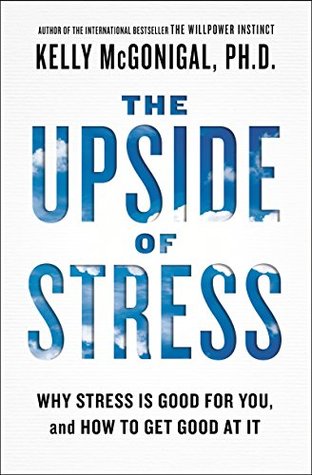More on this book
Community
Kindle Notes & Highlights
Read between
May 16 - May 21, 2017
Mindsets are beliefs that shape your reality, including objective physical reactions (like the strength of my arm as Crum pushed on it), and even long-term health, happiness, and success. More important, the new field of mindset science shows that a single brief intervention, designed to change how you think about something, can improve your health, happiness, and success, even years into the future.
Studies consistently show that people get happier as they get older, even though younger adults find this difficult to believe.)
The first step toward changing your mind about stress is to notice how your current mindset shows up in everyday life.
We get stressed when our goals are on the line, so we take action. We get stressed when our values are threatened, so we defend them. We get stressed when we need courage. We get stressed so we can connect with others. We get stressed so that we will learn from our mistakes.
The stress response is more than a basic survival instinct. It is built into how humans operate, how we relate to one another, and how we navigate our place in the world. When you understand this, the stress response is no longer something to be feared. It is something to be appreciated, harnessed, and even trusted.
a meaningful life is a stressful life
For example, the Gallup World Poll found that raising a child under eighteen significantly increases the chance that you will experience a great deal of stress every day—and that you will smile and laugh a lot each day.
Rather than being a sign that something is wrong with your life, feeling stressed can be a barometer for how engaged you are in activities and relationships that are personally meaningful.
People are happier when they are busier, even when forced to take on more than they would choose.
Looking at both animal and human research, they found evidence that stress can increase caring, cooperation, and compassion.
“When individuals feel time constrained, they should become more generous with their time—despite their inclination to be less so.”
For example, people wrongly predict that spending money on themselves will make them happier than spending money on others, when the reverse is true. Giving can boost your mood even when you are forced to do it.
Paradoxically, by focusing on helping others instead of proving themselves, they become more respected and better liked than people who spend more energy trying to impress others than they do supporting them. In contrast, people who relentlessly pursue self-focused goals are more likely to be resented and rejected by others, and to experience a decline in social support over time.
A sympathetic stress response to another person’s suffering can spark empathy and motivate helping, which in turn enhance our own well-being.
Adversity can create resilience, and trauma often inspires personal growth.
To find the courage to grow from stress, you need to believe that something good can come from your suffering.
People who had experienced a moderate level of adversity had the lowest risk of depression, the fewest physical health problems, and the greatest satisfaction with life.
Earlier in this book, I mentioned that after students take my New Science of Stress course, they are less likely to agree with the statement “If I could magically remove all the painful experiences I’ve had in my life, I would do so.”
all. The things that protect us from
The science also tells us that stress is most likely to be harmful when three things are true: You feel inadequate to it; It isolates you from others; and It feels utterly meaningless and against your will.


